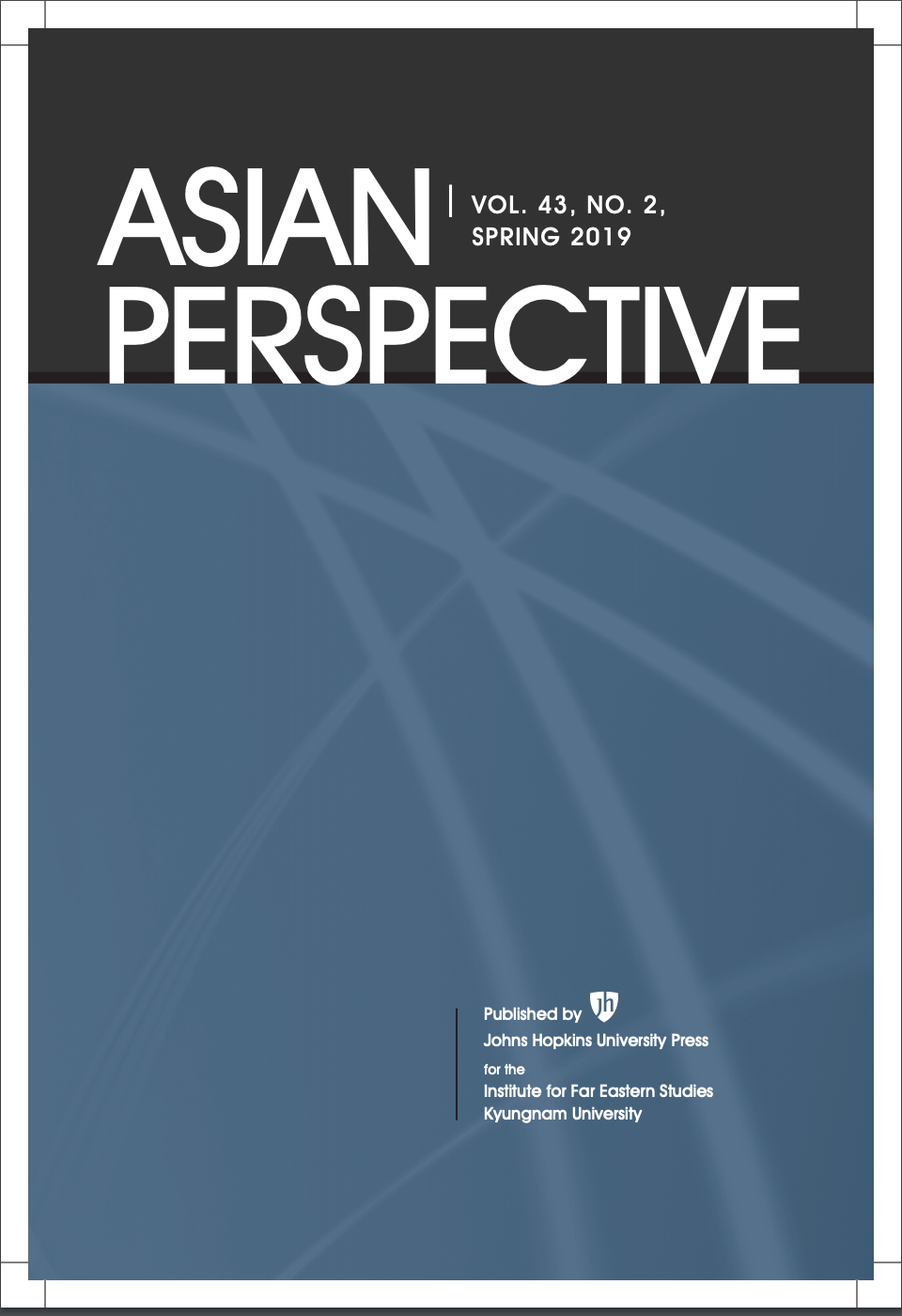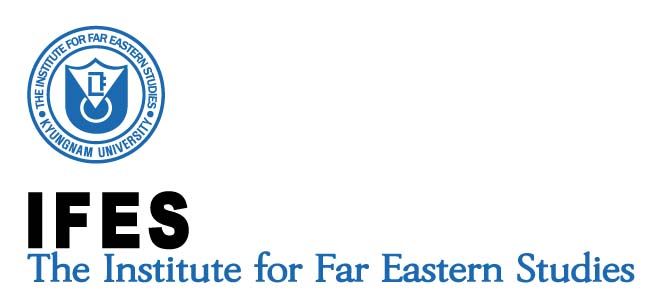Manuscript Submission Guidelines
The editors welcome manuscripts bearing upon issues in the social sciences in general and particularly world/comparative politics and Asia's regional affairs. Contributors should submit manuscripts to editors_ap@jh.edu.
Inquiries may also be directed to the Editor-in-Chief or Managing Editor. Prospective contributors based in North and Latin America and Europe are kindly requested to contact Dr. Ho-fung Hung; all others should contact Dr. Dean Ouellette.
Managing Editor: Dean Ouellette, IFES: The Institute for Far Eastern Studies, Kyungnam University, 2(Samcheong-dong) Bukchon-ro 15-gil, Jongno-gu, Seoul 03053, Korea, asianper@kyungnam.ac.kr
Editor-in-Chief: Ho-fung Hung, Johns Hopkins SAIS, 1619 Massachusetts Ave. NW, Washington, DC, USA, hofung@jhu.edu
SUBMISSION DETAILS
a. REFERENCES:
(1) Book
Smith, John. 1998. China's Revolution: Rise and Fall . Princeton, NJ: Princeton University Press.
Shambaugh, David, and Michael Yahuda, eds. 2008. International Relations of Asia . Lanham, MD: Rowman and Littlefield.
(2) Article
Shen, Dingli. “Building China-India Reconciliation.” Asian Perspective , vol. 34, no. 4 (Winter), pp. 139–163.
Blanchard, Jean-Marc F., and Fujia Lu. 2012. “Thinking Hard About Soft Power: A Review and Critique of the Literature on China and Soft Power.” Asian Perspective , vol. 36, no. 4 (October–December), pp. 565–589.
(3) Collection
Choi, Bong Dae, and Kab Woo Koo. 2009. "The Development of Farmers’ Markets in North Korean Cities.” In Phillip H. Park, ed., The Dynamics of Change in North Korea: An Institutionalist Perspective . Seoul: IFES, Kyungnam University Press, pp. 75–134.
(4) Newspaper
Print edition: Crow, Stanley Crow. 2001. "US-Korea Relations Strained." New York Times , July 30, p. 2.
Online edition: Sanger, David E. 2010. “North Korea Keeps the World Guessing.” New York Times , November 29.
www.nytimes.com/2010/11/30/world/asia/30korea.html .
No author: Bloomberg. 2019. “Kissinger Says US and China in ‘Foothills of a Cold War’.” November 21. www.bloomberg.com/news/articles/2019-11-21/kissinger-says-u-s-and-china-in-foothills-of-a-cold-war .
(5) Dissertation: King, Andrew J. 1976. "Law and Land Use in Chicago: A Pre-history
of Modern Zoning." PhD diss., University of Wisconsin.
(6) Online – Website: National Committee on North Korea. 2021. “New Documentary on Science Diplomacy with North Korea.” NCNK, June 22. www.ncnk.org/news/new-documentary-science-diplomacy-north-korea.
- References, appended to the end of articles, should list all cited sources in alphabetical order.
- The use of "et al." is not accepted in first appearance of a reference: list the names of all authors using full names.
- Note numbers should generally appear at the end of the sentence rather than in the middle.
7. Authors must also include a brief biographical sketch, plus a recent CV with mailing and e-mail contact information. Preferably, all information should be sent via e-mail attachment.
Review Procedures for Submitted Manuscripts
Regulations on Research and Publication Ethics
[Article 1] Purpose (hereinafter in the same style)
- These regulations pertain to manuscripts submitted to and published in Asian Perspective, the international journal published by the Institute for Far Eastern Studies (hereinafter IFES), Kyungnam University, for the purpose of preventing academic misconduct and upholding the basic principles of research ethics.
[Article 2] Academic misconduct
- The following refers to academic misconduct (hereinafter, "misconduct") concerning duplicate publication and manuscripts containing forgery, falsification, plagiarism, inaccurate ascription of authorship, etc.:
1. Duplicate publication: publication of past work, in whole or in part, without proper indication
2. Forgery: use of non-existent data or creation of false results
3. Falsification: arbitrary manipulation of research data or skewing of research results
4. Plagiarism: use of other's ideas, logic, terminology, data sources, and analysis without indicating sources in an appropriate way
5. Inaccurate ascription of authorship: refusal to ascribe for no good reason authorship to someone who has contributed to the contents or research results of the manuscript, or ascription of authorship to someone who has not made a legitimate contribution to the manuscript
[Article 3] Informant
- Concerning the actual misconduct and relevant evidence or informing of the misconduct to the editorial committee:
Section 1 - The notifying of misconduct can come in the form of oral, written, telephone, email, etc. or other possible methods and will be handled discreetly. However, even if made in writing or email anonymously, in accordance with the reported case, specific details and evidence of the misconduct will be processed.
Section 2 - The identity of the whistleblower is not subject to disclosure. Regardless of the substance of the allegation of misconduct, to protect the whistleblower, his/her identity shall not be included in the report.
[Article 4] Examinee
- Concerning the editorial committee’s investigation or the examinee of the misconduct, allegation of misconduct will not be disclosed before a judgment is conclusive.
[Article 5] Verification
- Responsibility to prove the facts of the misconduct is that of the editorial committee.
Section 1 - The editorial committee guarantees the equal rights and opportunity for the whistleblower and examinee to state their opinions and appeal.
Section 2 - The target of verification of misconduct is papers published in the journal within a period of three years and papers under review.
Section 3 - Misconduct is to be determined in the process of the verification, preliminary investigation, and main investigation.
[Article 6] Preliminary investigation
- The preliminary investigation shall proceed within 30 days of receipt of the complaint of suspicion of misconduct.
Section 1 - A decision can be made by the Editor-in-Chief without going through the entire process of the main investigation if the misconduct is recognized in the preliminary findings and by the examinee.
Section 2 - In the event it is decided that a preliminary investigation not be conducted, specific reasons for such decision must be notified in writing within 14 days of submission of a complaint; however, in the event of an anonymous tip, this will not apply.
[Article 7] Main investigation
- Concerning the procedure of the main investigation of the facts of the misconduct, and proceeding investigation committee:
Section 1 - The investigation committee shall be comprised of the Editor-in-Chief or Managing Editor and four (4) members designated from the Editorial Committee. However, other relevant outside experts can be appointed depending on the research
topic.
Section 2 - The investigation committee shall provide the informant and the examinee the opportunity to state their case before results of the main investigation are given. In the event that the parties have an objection, the opportunity to appeal shall be
considered.
Section 3 - For the investigation committee to reach a "yes" or "no" outcome, the decision must be approved by a two-thirds majority.
*Section 4 - To help identify cases of misconduct, the submitted/published manuscript being investigated shall have its contents screened by a screening service to determine their originality.
[Article 8] Judgment
- Upon confirmation of the results of the main examination, the whistleblower and examinee will be informed of the proceedings.
[Article 9] Follow-up action
- Concerning the procedure following a judgment of misconduct:
Section 1 - The guilty party shall be prohibited from making a contribution to the journal for three years beginning from the date of the final judgment.
Section 2 - The relevant manuscript shall be removed from the Internet.
Section 3 - Disclosure of the judgment shall be made on the IFES website and in the subsequent issue of the journal Asian Perspective.
[Article 10] Revision of the regulations
- Amendment of these regulations require the initiative of the Managing Editor and one third or more of the Editorial Committee, with two thirds of the Editorial Advisory Board in favor of the amendment.
These regulations shall come into force on 1 October 2009.
*Amended on 1 May 2014.


